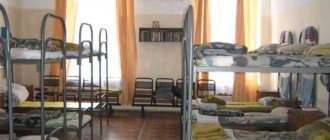In order to solve such a painful issue for most Russians regarding the purchase of their own housing, there are several social programs at the state level that are aimed specifically at improving living conditions for low-income citizens. Since legally every person has the right to housing, and it is very difficult to realize it without financial assistance from outside, you can take advantage of special benefits and get on the waiting list to get an apartment. This is done subject to the following conditions:
- Official confirmation of the status of a low-income person;
- Lack of own housing or living in premises that are unsuitable.
If these requirements are met, the provision of state assistance is formalized by appropriately contacting the local administration or other responsible institution, after preparing a number of requested documents.
Each person registered is assigned an initial number, which will change as the queue progresses. Therefore, each participant in the social program needs to periodically monitor the progress of the lists.
I am an orphan, is it possible to find out which queue I am on? Getting housing.
14.1. you need to contact the authority with which you are registered for housing. Good luck and all the best.
14.2. What does it mean to know? If you didn’t get in line, it means there’s nothing to learn. You have the right to a preferential queue when applying before the age of 23. Good luck and all the best.
Expert opinion
Davydov Alexander Yurievich
Civil law consultant with 20 years of practice. Author of numerous articles on legal topics
15.1. No, you do not need to contact the Administration, but the Department of Labor and Social Protection of the Population of your city, since now they keep all the lists of orphans.
15.2. Contact the city administration in the department where the documents were submitted; in principle, they were required to tell you the queue number. Good luck to you and all the best.
16.1. Law of the Khabarovsk Territory of December 10, 2012 N 253 “On the provision of living quarters for orphans and children without parental care, persons from among orphans and children without parental care in the Khabarovsk Territory”
Regarding the queue, write to the administration at your place of residence.
Checking a new building when purchasing a property under construction: step-by-step instructions
After checking the developer, you should proceed to checking the house itself being built. A standard check can be carried out using the following algorithm:
Step
1. Checking the project declaration and permits for building a house
These documents, as a rule, are freely available on the developer’s website. Their absence may indicate the illegality of the work performed.
You can check the validity of a building permit at the relevant department. For example, permits issued in Moscow can be checked using
The absence of a construction permit or its expiration in the absence of an extension in the future can result in serious problems for both the developer and the shareholders. In this regard, it is necessary to ensure the validity of the permitting documentation before signing the contract.
You should also be wary of repeated postponements of the project delivery deadlines, documented by changes to the project declaration (such information should also be on the developer’s website), and discrepancies between the “project” deadlines and those specified in the contract.
Step
2. Checking documents confirming the rights to the land plot
Such documents must also be posted on the developer’s website. You can check the compliance of the parameters of the land plot reported by the developer with the information contained in the Unified State Register of Real Estate on the Rosreestr website -. It is quite difficult to assess the legality of using land without involving a specialist, since it is necessary to correlate the category of land, the type of permitted use, the type of right under which the developer owns the land plot and the content of regulations.
If the land plot is owned by the developer on a lease basis, it is necessary to check the validity of the agreement (whether the terms have expired, whether the agreement has passed state registration), and whether there are any disputes in court between the developer and the lessor.
It is also important to correlate the boundaries of the land plot with the configuration of the building, since sometimes developers carry out construction partially outside the boundaries of the site.
Step
3. Estimating the pace of construction from photographs of the house under construction
Find an experienced builder and show him current and previously taken photographs of the house under construction. Even a cursory glance by a specialist will be enough to assess the pace of construction and say whether the developer will have time to deliver the house by the deadline stated in the project declaration. It is also worth analyzing information about concluded agreements for participation in shared construction (indicate the cadastral number of the land plot on which the new building is located; in the detailed information you will find registered pledges - these are registered DDUs). By comparing the number of registered contracts (you can calculate the amount of funds raised from equity holders based on the average price of an apartment in a residential complex) and the pace of construction, you can draw a conclusion about the intended use of funds, as well as the availability of your own or credit resources for construction (for example, if the pace of construction is significantly are ahead of the sale of apartments under the DDU, from this we can conclude that the developer has his own financial resources or credit funds for which construction is carried out).
Step
4. Assessing the degree of readiness of the house
Unfortunately, recently even developers with an ideal long-term history can overnight turn into a problematic developer, from whom you will have to wait for years to hand over the property.
In this regard, the best evidence of the construction of a house will be a direct visit to the site. You can do this first with the developer’s manager, who will tell you about the property and current work, and then on your own.
It is important to assess whether communications (light, water) are connected and ask workers about this.
In addition, it is advisable to gain access to a forum of shareholders (VKontakte group, another social network, a community in instant messengers, etc.), where shareholders often write openly about housing complex problems.
Step
5. Checking the accreditation of the property and the developer by credit organizations.
You need to make a list of banks that lend to the residential complex you are considering. The longer the list, the better: during accreditation, banks check the financial condition of the developer, which is an additional guarantee of its reliability.
Information about loans provided can be obtained on bank websites or by calling hotlines.
I am an orphan, how do I know where I am in line for housing?
17.1. To do this, you need to contact the local administration and territorial social protection authorities, write a request in the order of citizens’ requests.
17.2. To obtain information about your queue, I recommend contacting your local administration and clarifying the information.
18.1. You can find out your turn by contacting the local administration; if you have been registered for a long time and they tell you that there are no funds to allocate housing, then contact the prosecutor’s office, they will conduct an inspection.
18.2. Olesya! You need to contact the body authorized to look after the fate of orphans in each region, it is different; the administration of your city will tell you where exactly to contact. Sincerely, STANISLAV PICHUEV.
18.3. To do this, you need to personally contact the local administration. All the best, good luck and all the best!
19.1. If you are already on the waiting list for housing as an orphan, then you can spend maternity capital to improve the family’s living conditions and at the same time retain the right to housing as an orphan. Providing housing for orphans and improving housing conditions with maternity capital are different grounds for state assistance. Good luck.
19.2. If each family member has less than the accounting norm, then you should not be removed from the housing register. In this case, you will receive residential premises under a specialized rental agreement.
20.1. This is regulated by regional legislation and you will need to contact your social security department for details. Good luck and all the best to you.
20.2. - Hello, no one will issue anything for you. Demand your legally required housing, complain to the prosecutor's office and to the court. Good luck to you and all the best.
21.1. And if I'm married, doesn't it matter? There is an age limit, I’m 24. I’ve been on the waiting list for housing since 2009. — the administration doesn’t have money for these purposes — go to court — speed up the process of getting housing.
22.1. since I went to the prosecutor's office that year and they told me that while you are studying, you will not get an apartment, is this true or is there still a chance to win the court? This is not so - the apartment is provided on a first-come, first-served basis - beneficiaries have their own turn, if nowhere to live, go to court—speed up the process of obtaining housing.
How's the line going?
After submitting documents, citizens are assigned a queue number for housing . Using this number, owners can determine promotion.
You can count on getting an apartment soon:
- orphans;
- families in which a citizen with a chronic illness or a disability lives;
- residents of emergency buildings.
is one of the first to provide housing to orphans , since they belong to the most vulnerable social segment of the population.
Under preferential conditions, those whose property is recognized as unsafe or unsuitable for habitation can count on an apartment. Property status is assigned by the social service commission in the region.
Military personnel acquire property either as part of a preferential loan program or due to their official position. Their promotion is different from other beneficiaries. Information is obtained from the housing registry at the place of service.
If owners do not fall into one of these categories, they can count on help from other subsidies. For example, according to the young family program.
View information
In order not to miss your rightful turn for housing, you need to regularly find out your turn on the list. You can view it and find out the necessary information in several ways:
- Submit a formal written request in duplicate to the housing department;
- Send the application and notarized copies of documents via the post office by registered mail with a list of attachments and return notification in order to be able to track the response time. They should not exceed thirty days;
- Contact the local administration, where you can find out your current apartment number almost immediately;
- View your number via the Internet in the regional electronic database. For example, in Moscow this can be done on the public services portal pgu.mos.ru
As can be seen from the above, there is no difficulty in obtaining the necessary data and finding out your current serial number in the queue for an apartment or other housing. There are also no restrictions on request frequency.
However, it is worth remembering that not all of the answer options presented will have legal force if you suddenly need to transfer the information received to any authority or organization. Finding out your apartment number via the Internet is the easiest and most convenient way, but such data is for informational purposes only.
How is the promotion going?
Our articles talk about typical ways to resolve legal issues, but each case is unique. If you want to find out how to solve your specific problem, please contact the online consultant form on the right →
It's fast and free!
Or call us by phone (24/7):
If you want to find out how to solve your particular problem, call us by phone. It's fast and free!
The state must provide its citizens with social services. guarantees. This is the main purpose of its creation and existence. First of all, it is worth thinking about guarantees when it comes to the most defenseless people. And among them are children who, due to various circumstances, were left without care and love.
One of the most difficult problems for orphans is buying a home. The queue for an apartment for orphans was created so that all the little ones get their own home.
Definition of orphan
Expert opinion
Davydov Alexander Yurievich
Civil law consultant with 20 years of practice. Author of numerous articles on legal topics
Citizens find themselves in various situations. Therefore, let us define the word orphan as it is interpreted by the current law. This category includes young children who have not celebrated their majority and whose parents have died.
There is also the concept of children left without parental care - these are citizens under the age of 18 who are left without guardians due to the following points:
- deprivation of parental rights;
- restrictions on parental powers;
- recognition of the father and mother as missing;
- recognition of relatives as incompetent;
- death of parents;
- establishment by a judicial authority of the fact that a child has lost the care of relatives;
- parents serving time in prison;
- being in custody or charged with a crime;
- evasion of parents from raising their children or from protecting their rights;
- refusal of relatives to pick up their children from educational, medical, social services. organizations;
- if nothing is known about the parents;
This is important to know: Hourly wages in an employment contract: sample 2021
The baby is assigned an official status:
- orphans;
- a child left without family care.
This activity is carried out by state guardianship agencies of the local administration . Only after confirming their status and receiving special paper can a small child count on government support, including an apartment.
To assign a category, 2 points are important:
- inability to receive care and financial support from parents for prescribed reasons (or others - decided individually);
- not reaching the age of majority.
Basic laws
The acts of legislation that lawyers look at when deciding the issue are as follows:
- Federal Law No. 159-FZ “On additional guarantees for social support for orphans and children left without the care of their mother and father.”
- P.P. Russia dated 04/04/2019 No. 397 “On creating a list of orphans and children left without the care of their mother and father...”.
Previously, the rules for providing for orphans looked like this:
- they were not put on a waiting list, but were immediately given the apartments that the administration had;
- there were no lengthy proceedings regarding eligibility;
- if an orphan was not provided with housing before his 23rd birthday, he was removed from the register;
- The living space was registered in accordance with social standards. hiring
In the process of investigating various situations, it was found that such rules open up opportunities for fraudsters. In particular, young citizens who received free living space:
- sold it to get money;
- handed over to scammers.
And changes approved in 2014 stopped fraudulent schemes in relation to orphan housing.
Removal from the housing queue is illegal according to the law.
All Moscow residents who are registered as needing improved housing conditions are concerned about moving up in line to provide them with new living quarters. In connection with the renovation, this issue has become incredibly discussed, since if a house is resettled under the renovation program, then the citizens living in the said house who are on the housing register simultaneously improve their living conditions (which was not previously provided for).
However, I would like to understand the following: how does this guarantee work and will it work in ensuring the housing rights of Moscow residents?
The Renovation Law was actively discussed in the media, and to this day the disputes do not subside, while the amendments to Part 4 of Art. 8 of the Law of the City of Moscow dated June 14, 2006 No. 29 “On ensuring the right of residents of the city of Moscow to residential premises” (hereinafter referred to as the Law), introduced by the Law of the City of Moscow dated December 28, 2021 No. 55 and entered into force on January 9, 2021 that affect the housing rights of capital residents.
Old version of Part 4 of Art. 8 of the Law According to the old version of Part 4 of Art. 8 of the Law, Moscow residents were recognized as needing residential premises if they lived in houses that lacked at least one of the types of amenities specified in Appendix No. 1 to this Law, regardless of the accounting standard for the area of residential premises.
By virtue of this application, comfortable residential premises in Moscow must meet the following standard: a house (apartment) with all types of amenities (electricity, water supply, sewerage, heating, bath or shower, gas or electric stove, hot water supply or gas water heater), regardless of the material walls
Thus, if a residential premises that was in the use (ownership) of a Moscow resident did not have at least a centralized hot water supply, this housing could no longer be taken into account when determining the level of provision of residential premises for the specified Moscow resident.
Despite this version of the Law, the Department of City Property of Moscow removed residents of the capital from the housing register only on the basis that they owned, for example, a dacha, which was mistakenly declared as a residential building, or, even worse , a house in a remote village without any communications.
To be fair, it should be noted that such cases had positive practice in court, i.e. In such cases, the courts satisfied the demands of Muscovites and reinstated them on the housing register. However, according to statistics, out of ten people removed from the housing register, two went to court - thus the housing queue in Moscow moved forward.
The DGI of Moscow, knowing that such actions of his were declared illegal by the courts, still removed Moscow residents from the housing register on the specified grounds, even if they provided the DGI with information about the lack of communications in the houses they owned.
New edition of the article Most likely, due to the fact that the courts, as a rule, satisfied the claims of Muscovites to declare illegal removal from housing registration “due to the ownership of a garden house, a house without communications”, Part 4 of Art. 8 of the Law has been in effect since January 9, 2021 in a new version: “Residents of the city of Moscow are recognized as needing residential premises if at least one of the following grounds exists: applicants live in residential premises in apartment buildings that lack at least one type of amenities, specified in Appendix 1 to this Law, regardless of the accounting norm for the area of residential premises.”
Thus, if previously, when determining the level of security, any houses in which there was no at least one type of communications should not have been taken into account, then after the entry into force of these changes, only residential premises in apartment buildings that do not have communications should not be taken into account. These, as I understand it, are, for example, “barracks”, which have the status of an apartment building.
I believe that the number of such residential premises in apartment buildings (without communications) is small. Such residential premises can be in towns and villages. Accordingly, lawsuits in courts in such cases will most likely be nullified.
How will the provisions of Part 4 of Art. 8 of the Law Since the beginning of 2021, the DGI of Moscow began to “massively” remove Moscow residents from the housing register due to the ownership (use) of houses and dachas. Those on the housing register are required to conclude that the residential building is unsuitable for habitation; otherwise, the Moscow Department of State Inspectorate issues an order to remove it from the housing register. At present, there are no court decisions on such cases yet. However, taking into account the rule “the law does not have retroactive force,” I think it is clear that the application of these changes in Part 4 of Art. 8 of the Law to residents of Moscow who are already on the housing register is unacceptable. This article of the Law in its current version can only be applied when determining the level of provision of citizens with residential premises when registering housing, i.e. to those Moscow residents who registered for housing after January 9, 2021.
Unconstitutionality of Part 4 of Art. 8 of the Law, set out in the new edition . In my opinion, there are reasons to believe that Part 4 of Art. 8 of the Law in its current version contradicts the Constitution of the Russian Federation, namely Art. 19 (equality of all before the law), art. 40 (right to housing).
I believe that being in the use (ownership) of a Moscow resident of a residential building in an apartment building without the necessary communications is absolutely equivalent to being in his ownership of just a residential building (dacha) without communications. A statement to the contrary contradicts the Constitution of the Russian Federation.
Conclusion Today the following situation has developed. Instead of changing the policy of the DGI, i.e. not to accept obviously illegal orders (and before making an order, request information about the presence/absence of necessary communications in the house), the Moscow authorities took a different path: having ignored the positive practice of the courts on this issue, they changed the legislation of the city of Moscow and excluded the possibility of further adoption positive for Muscovites court decisions on this issue.
Who is entitled to housing from the government?
According to the laws in force in 2021, municipalities provide square meters for orphans and children deprived of parental care. They should be given apartments from social security. fund, if any.
ATTENTION! A child’s living space can be replaced with a certificate for designated funds. You can only spend them on buying an apartment or house.
The mechanism for providing housing for orphans has undergone various changes. They touched on almost all aspects of the issue, except for the most important one - the recipient of government assistance.
How to get on the list
To get on the waiting list for housing, you must submit an application supplemented with specific documents. You can do this in different ways:
- personally through local social protection;
- by submitting all documentation with the help of a representative.
The appeal specifies the following information:
- initials of the applicant and the ward;
- place of residence;
- area at the place of queuing.
After sending the paper, you must wait for a response, which will arrive in 50 days. If the answer is positive, the citizen is given an Order to be included in the list; if it is negative, the citizen is given an Order to refuse.
An orphan can be removed from the list in the following situations:
- if it is established that he himself worsened his living conditions in order to obtain new housing;
- if it is already included in the program in another region;
- if department employees see inaccurate information in the submitted documents;
- if he is no longer a citizen of the Russian Federation;
- if he initially had no reason to claim the apartment;
- if not all documents were sent;
- if at the time of consideration of the application he died.
Conditions for queuing
To be included on the waiting list for housing, citizens must belong to one of the following categories:
- Low-income families . Status alone is not enough: Russians must live in a house recognized as unsafe or have property whose area is less than the established norm for 1 family member in the region.
- Orphans.
- Families with a disabled person or a person whose health condition requires the provision of separate living space.
- Military personnel.
- Citizens who have lost their property , for example, as a result of a program to demolish dilapidated buildings, can also join the general queue and count on receiving housing
The Regional Construction Fund provides the opportunity to get on the waiting list for an apartment to citizens who own a building where one of the types of housing and communal services is missing (the supply of gas, electricity, water, heating does not work).











